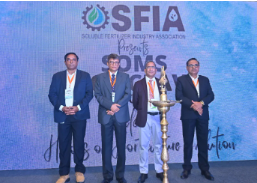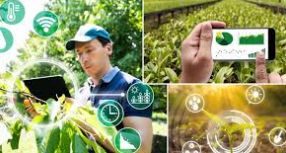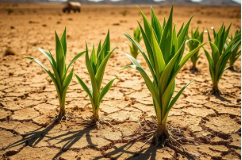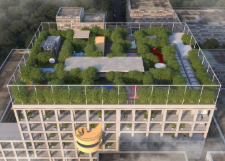
In a significant move toward promoting sustainable agricultural practices and inclusive sanitation, two major events have made headlines this week. While the Ministry of Jal Shakti and UNICEF jointly organized a national workshop emphasizing inclusive sanitation, the Soluble Fertilizer Industry Association (SFIA) inaugurated the highly anticipated SOMS-2025 International B2B Exhibition and Conference in Ahmedabad, Gujarat.
Focus on Non-Subsidized Specialty Fertilizers at SOMS-2025
SOMS-2025, standing for Soluble Fertilizer, Organic Fertilizer, Micronutrient, and Bio Stimulants, represents a scientific approach to enhance nutrient-use efficiency and ensure environmental sustainability. The event is focused particularly on non-subsidized specialty fertilizers, with an aim to reduce the overdependence on traditional subsidy-based fertilizers. Companies involved in the bio-agriculture sector are also participating, making the exhibition a comprehensive platform for emerging agri-technologies and sustainable farming solutions.
A Global Platform for Indian MSMEs
SOMS-2025 is designed to provide Indian agricultural input MSMEs (Micro, Small & Medium Enterprises) with an international platform to connect with global buyers, investors, and industry leaders. The event fosters business partnerships, promotes innovation, and aims to bring global recognition to Indian manufacturers. It reflects India’s ambition to lead the world in sustainable agriculture and precision farming.
Opening Doors for Global Investment in India
Beyond being a showcase for Indian innovation, SOMS-2025 is also a gateway for global investors and companies seeking to expand their operations in India. The SFIA, through this event, aims to position India as a hub for cutting-edge, sustainable agricultural practices, while attracting foreign direct investment in the agricultural input sector.
Honoring Agricultural Journalism
One of the key highlights of SOMS-2025 was a special session dedicated to honoring agricultural journalists. SFIA recognized and awarded journalists who have consistently reported on rural development, agricultural challenges, and policy implementation, thereby amplifying the voices of farmers and rural communities. The recognition served as an acknowledgment of the crucial role media plays in shaping public discourse around agriculture and highlighting on-ground realities.
Conclusion
With a dual focus on environmental sustainability and global collaboration, SOMS-2025 is poised to become a milestone event in the evolution of India’s agricultural sector. Simultaneously, initiatives like the national sanitation workshop signal the government’s commitment to holistic rural development. Together, these efforts mark a progressive stride toward building a more inclusive, innovative, and sustainable future for India’s agrarian economy.














